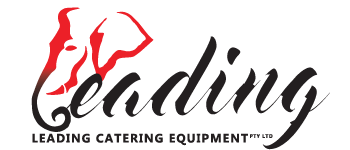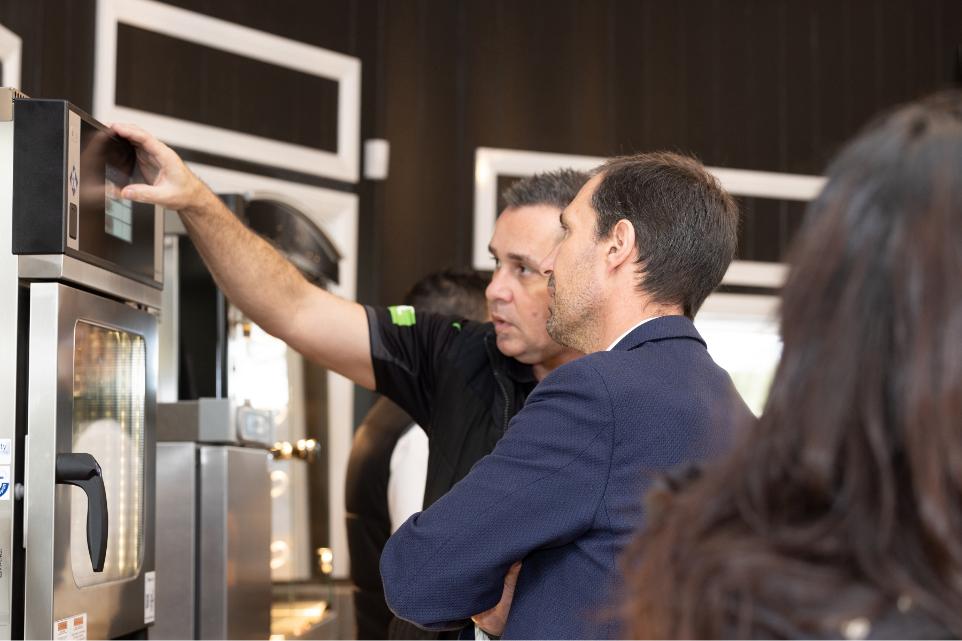The commercial pantry is the backbone of any food and hospitality operation. Whether you're opening a bustling restaurant, upgrading a café, or designing a ghost kitchen, every decision you make about commercial kitchen equipment impacts speed, safety, and satisfaction. But before you whip out the company card for that sleek combi oven or blast chiller, step back and ask the questions that separate smart investments from regretful purchases.
This guide unpacks the top questions you need to ask—because getting the correct answers now means fewer headaches later.
Built for durability, temperature precision, and efficient storage in demanding pantry environments, our ranges keep your ingredients fresh and your workflow seamless. Check out our Commercial Refrigeration offerings.
- What’s the Business Model and Menu Strategy?
Before browsing catalogues or showroom aisles, lock in clarity on your food service concept. Is it fast-casual, fine dining, or delivery-focused?
Ask:
- What’s my average order volume and turnaround time?
- Are we batch-prepping or cooking à la minute?
- Will menu items evolve seasonally or stay consistent?
Why It Matters
The appliance should serve your workflow, not the other way around. For example, a grab-and-go salad bar may thrive with prep stations and cold storage, while a steakhouse demands grill firepower and precision ovens. Matching gear to your service style avoids costly underutilisation.
- How Much Space Do I Have?
Kitchens are notoriously spatially challenged. Even in larger venues, equipment can quickly crowd out workflows—time to measure—and measure again.
Ask:
- Have I mapped out the exact kitchen layout and workflow zones?
- Is there room for essential accessories like shelving, sinks, or bins?
- Will door widths allow the delivery and movement of bulky commercial catering equipment?
Pro Tip
Use CAD software or kitchen design tools to simulate the placement before making a purchase. Some brands also offer layout assistance with space-saving configurations, especially for urban or mobile operations.
- What Are My Utility Constraints?
Every piece of gear consumes energy, water, and ventilation. Oversight here could mean electrical overloads or heat hazards.
Ask:
- What's the available power (single-phase, three-phase)?
- Are gas lines installed, or do I need electric alternatives?
- Is there a ventilation system to support fryers, ovens, or grills?
- What’s the water inlet capacity and drainage setup?
Why It Matters
Failing to align products with your utility infrastructure leads to downtime, renovation costs, or, worse, fire code violations. Utility-smart gear (e.g., low-water combination ovens or high-efficiency induction cooktops) can significantly reduce operating costs.
- What’s My Budget—Including Hidden Costs?
Price tags only tell half the story. Check beyond the sticker to know about the overall ownership expense of your commercial kitchen equipment for sale.
Ask:
- What are the installation and setup fees?
- Do I need exceptional plumbing, gas lines, or mounting appliances?
- What’s the maintenance schedule—and are parts readily available?
- How comprehensive is the warranty, and which part of your product does it apply to?
Watch Out For
Cheap models may have poor durability, require high maintenance, or necessitate frequent repairs. Opting for slightly pricier, reputable brands often pays off in the long term in terms of ROI.
- Is It Easy to Maintain, Clean & Repair?
Kitchen downtime is detrimental—the more complex the equipment, the higher the risk of malfunctions and cleanliness challenges.
Ask:
- Can staff efficiently access key parts for cleaning?
- Are manuals and troubleshooting guides clear and detailed?
- Does the brand have reliable service support nearby?
Game-Changer
Look for intelligent diagnostics and modular designs. Units with detachable components, self-cleaning modes, and auto-descaling can save hours of manual effort and reduce risks. For further information, reach out to top commercial kitchen equipment suppliers and distributors.
- Will the Equipment Scale With My Growth?
Avoid the trap of short-term fixes that stall long-term progress. Think beyond opening day.
Our Beverage and Drink Equipment range is designed to keep drinks flowing efficiently, safely, and at the perfect temperature. Please take a look at our products.
Ask:
- Will this gear support expansion plans or menu diversification?
- Can it handle increased customer volume?
- Does the manufacturer offer modular upgrades?
Why It Matters
A high-capacity prep counter or expandable refrigeration may not be essential right now, but they will be invaluable once your team grows or you add new offerings.
- Does It Meet Compliance & Safety Standards?
Don't play chicken with compliance. Regulatory violations can shutter operations and tarnish your reputation.
Ask:
- Is the equipment certified by local health and safety boards?
- Does it meet energy standards (e.g., ENERGY STAR)?
- Are fire safety and grease management protocols for your commercial equipment built in?
Avoid Risks
Skimping on certified gear might save money upfront, but it will fail inspections later. Ensure products meet HACCP, NSF, ISO, or BIS standards relevant to your region.
- Can It Handle Local Conditions?
From heatwaves in Delhi to monsoon humidity, your product must weather real-world kitchen conditions.
Ask:
- Can the refrigeration system handle ambient heat spikes?
- Is the material rust-proof and corrosion-resistant?
- Does it perform consistently despite voltage fluctuations?
Insider Tip
Equipment designed for harsh climates or unstable grids (like voltage regulators and built-in climate stabilisers) may be more resilient in Indian commercial kitchens.
- Can I See It in Action Before Buying?
Nothing beats a live demo. Watching equipment perform under real conditions reveals quirks and competencies.
Ask:
- Is there a demo kitchen or showroom I can visit?
- Can I attend a live showcase or industry event?
- Are there video walk-throughs or chef testimonials available? You can get these details by contacting your nearest commercial kitchen equipment sellers and manufacturers.
Why It Matters
Seeing is believing. It also helps staff become familiar with the equipment before it hits the kitchen floor.
- What Do Other Buyers Say?
Peer insights are priceless. Learn from those who've already garnered the essential experience.
Ask:
- What do chefs and kitchen staff say about this gear?
- Are there case studies or user reviews available?
- How has the brand responded to complaints?
Bonus Move
Join restaurant owner forums or LinkedIn groups to tap into unfiltered feedback and insights. A fryer may look great on paper, but a string of complaints about oil drainage design could be the dealbreaker.
- Is Staff Training Included or Readily Available?
Even the best product is only as good as the individuals operating it.
Ask:
- Will the supplier provide on-site training or setup tutorials?
- Are user manuals and online guides available in my team's preferred language?
- How intuitive is the interface—can staff learn quickly?
Why It Matters
Streamlined onboarding reduces error rates and accelerates kitchen readiness. Consider new or used commercial kitchen equipment with touchscreens, multi-language options, or video tutorials to ease the learning curve.
- Does It Play Well With Other Gear?
Interconnectivity can enhance efficiency and reduce friction in fast-paced kitchens.
Ask:
- Is this equipment compatible with existing systems like POS or IoT platforms?
- Will it fit seamlessly next to current equipment (height, layout, ventilation)?
- Are there models that offer integration features for smart kitchens?
Pro Tip
Brands now offer sync-ready equipment that connects to workflow tracking, inventory control, or innovative diagnostics, especially valuable for multi-location chains or cloud kitchens.
Burner Cooktops Get instant heat control and high flame intensity, making the products ideal for searing, sautéing, and stir-frying in fast-paced kitchens. Browse our Burner Cooktops here.
Conclusion
Commercial cooking equipment isn’t just a purchase—it’s a partnership with your business goals. When you ask the right questions, you make confident decisions that elevate every dish and every service hour.
Think of equipment not just as metal and motors but as silent team members backing every rush order, quiet prep, and Instagram-worthy plate. Whether you're sautéing scallops or scooping sorbet, the right tools help you do it with excellence and ease.






